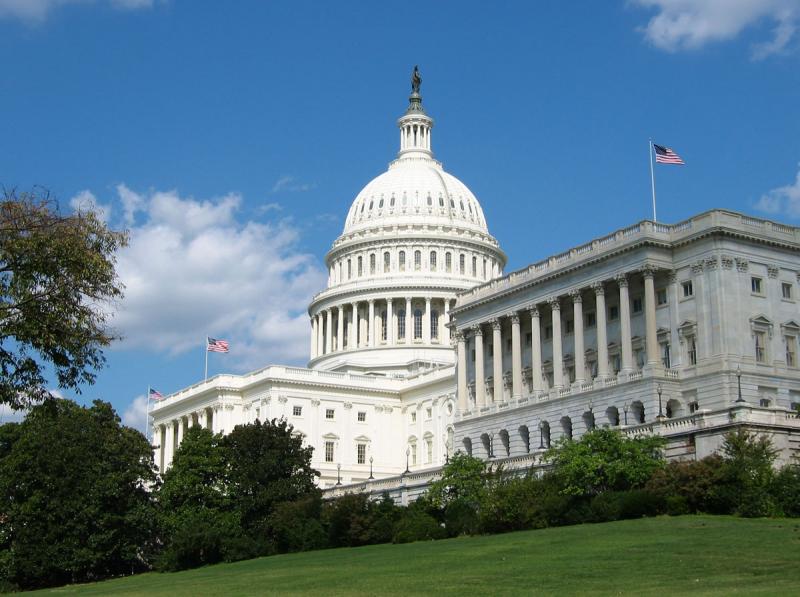
Lawmakers have agreed to a year-end legislative package to fund the government and provide COVID-19 relief. While this agreement includes several wasteful spending provisions, the proposal also includes significant tax reduction that will help American families and businesses. These tax cuts should be supported by members of Congress.
Importantly, this agreement makes a number of tax extenders permanent, which will help put an end to the annual Congressional process of routinely extending specific, temporary tax cuts for one or two years at a time, instead of focusing on broad based tax reduction. Not only does this practice promote uncertainty, it distorts the revenue baseline and obscures the true cost of tax provisions.
Provisions made permanent include excise tax cuts for wineries, distilleries, and breweries, the 7.5 percent AGI threshold for the medical expense deduction, and the railroad track maintenance credit.
The proposal also extends other tax cuts for five years, including the CFC look-through rule, the employer tax credit for paid family leave, and the New Markets Tax Credit.
In addition, lawmakers prevented a tax increase on small businesses that have received PPP loans in the COVID-19 stimulus section of the agreement.
Unfortunately, there are some concerning tax provisions that are being extended. For instance, the agreement again extends distortionary and wasteful green energy tax credits, which should be allowed to expire.
However, in net, these tax cuts should be supported by lawmakers.
Key provisions include:
Protects Small Businesses from Tax Increases on PPP Loans
Lawmakers have protected small businesses from being taxed on their Paycheck Protection Program (PPP) loans. This will ensure that the five million struggling businesses that received an average loan of $100,000 from the program will not owe the government taxes on business expenses paid (such as rent and wages) with these loans.
The Coronavirus Aid, Relief, and Economic Security (CARES) Act created the PPP to provide small businesses impacted by COVID-19 with emergency liquidity, so they could continue making payroll and meeting other business expenses.
However, on April 30, the IRS released Notice 2020-32, which prohibited businesses from deducting expenses paid with a PPP loan, even though these expenses would otherwise qualify as ordinary, tax deductible business expenses.
By imposing taxes on PPP loans, the IRS essentially canceled a significant portion of the loan, eroding the financial assistance granted. If this tax increase was allowed to go into effect, it would have harmed small businesses across the country as they attempt to survive and re-engage in commerce in the wake of the pandemic.
Enacts Permanent Tax Relief for Breweries, Wineries, and Distilleries
The tax extenders agreement makes the Craft Beverage Modernization and Tax Reform Act (CBMTRA) permanent. This tax cut, which provides federal excise tax relief for breweries, wineries, and distilleries, was first enacted through the Tax Cuts and Jobs Act of 2017. This tax reduction allowed these businesses to hire more employees, purchase new equipment, and expand production.
If lawmakers had failed to act, this tax cut would have expired at the end of the year, and businesses across the country would have faced a tax increase.
ATR has kept a running list of dozens of distilleries, breweries, and wineries that have been able to expand production, hire new workers, and invest in the economy thanks to the CBMTRA. Making these tax cuts permanent will help businesses continue supporting the economy and workers.
Provides Five-year Extension of CFC Look-through Rule
Congress has also included a five-year extension of the controlled foreign corporation (CFC) look-through rule under IRC section 954 (c)(6). This five-year extension will help American businesses compete overseas and will provide important certainty for businesses. Moving forward, this tax cut should be made permanent.
The CFC look-through rule helps provide cash-flow and liquidity for American businesses operating overseas by protecting payments such as dividends, interest, and royalties from taxation when they are made between two U.S. subsidiaries. Without the look-through rule, American businesses will be double taxed on income earned overseas.
It is important to note that the CFC look-through rule is not a “tax loophole.” It does not give taxpayers a windfall, but instead levels the playing field. Foreign companies typically do not face additional tax when redeploying capital amongst different subsidiaries, so the CFC look-through rule ensures American businesses can compete.
Unnecessarily Extends Wind and Solar Subsidies
Unfortunately, the agreement extends tax subsidies for wind and solar energy for one and two years, respectively. These tax credits were created decades ago as temporary provisions with the intent of helping a nascent industry get on their feet and to reduce dependency on foreign oil.
However, that is not what has happed – these provisions have been routinely extended. For instance, the wind production tax credit was first created in 1992 and has already been extended 12 times.
These credits should be eliminated, as noted in a recent letter led by ATR and signed by two dozen conservative organizations. The fact is, wind and solar credits are no longer needed since renewable energy technologies are established and can compete with existing energy sources.
Rather than re-extending wind and solar credits, lawmakers should prioritize broad-based tax policies. Moving forward, Congress should allow these provisions to expire as part of revenue-neutral, pro-growth tax reform.
Permanently Expands Medical Expense Deduction
The tax extenders deal permanently allows middle class taxpayers to claim the medical expense deduction if their healthcare expenses exceed 7.5 percent of adjusted gross income (AGI). Before Obamacare, this threshold was 7.5 percent of AGI and was claimed by more than 10 million families, whose average income was around $53,000 a year.
In 2010, Obamacare raised the threshold to 10 percent of AGI, which increased taxes on families by $200-$400 per year and violated the Obama-Biden pledge not to raise taxes on families earning $250,000 or less. The TCJA restored the threshold to 7.5 percent of AGI temporarily for two years, but the 10 percent threshold was brought back at the start of 2019.

